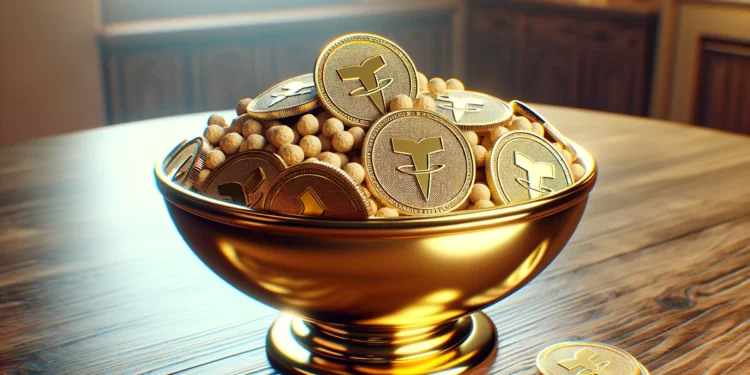- Tether controls 75% of the stablecoin market, but lacks third-party audits, sparking fears of a potential collapse.
- Investors, including Justin Bons, raise alarms about the lack of transparency in Tether’s $118 billion reserves.
- A hypothetical Tether collapse would be banking-driven, unlike FTX’s market-based failure, says IDA Finance co-founder Sean Lee.
Tether, the issuer of the world’s largest stablecoin USD₮, is facing growing concerns from investors over its lack of third-party audits. These fears have been amplified as Tether’s market dominance has surged to over 75% of the stablecoin sector, prompting worries about a potential liquidity crisis akin to the collapse of FTX.
Cyber Capital’s founder, Justin Bons, recently highlighted these concerns in a post, emphasizing that Tether has never undergone a full third-party audit to verify its $118 billion in reserves. Bons also referenced the United States Commodities and Futures Trading Commission’s (CFTC) 2021 fine of $41 million for misrepresenting its reserves, which further added to skepticism.
Banking Fears Echo FTX Collapse Concerns
Sean Lee, co-founder of IDA Finance, suggested that if Tether were to implode, it would likely stem from its reliance on banking partners rather than market movements. While FTX collapsed due to its inability to meet massive withdrawal demands, Tether’s collapse would be tied to its banking infrastructure, Lee noted. He also pointed out that Tether’s resilience during the last bear market, compared to other stablecoins like USD Coin (USDC), is an indicator of its strength.
Despite these reassurances, some, like blockchain expert Anndy Lian, warn that Tether’s centralized structure could pose long-term risks to the broader cryptocurrency market.
Transparency and Governance Issues Highlighted
Tether’s recent investment of $100 million into Adecoagro, a Latin American agricultural company, revealed some of its governance practices. Cyber Capital’s Bons criticized the limited transparency, noting that Tether’s board consists of just two members, raising concerns about the centralized control of its reserves.
Despite boasting $118 billion in reserves backed by quarterly attestations from BDO, critics argue that Tether has yet to undergo a formal third-party audit, leaving questions about its stability unanswered.














